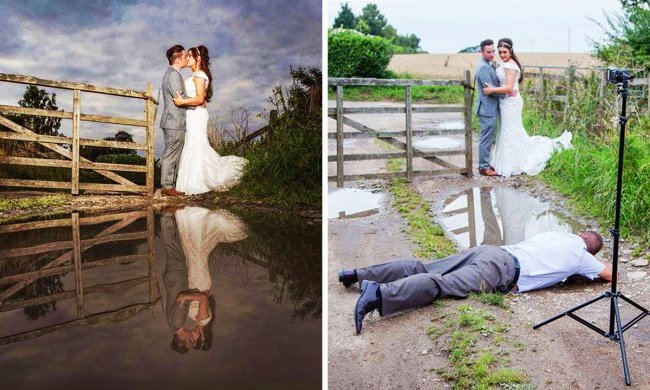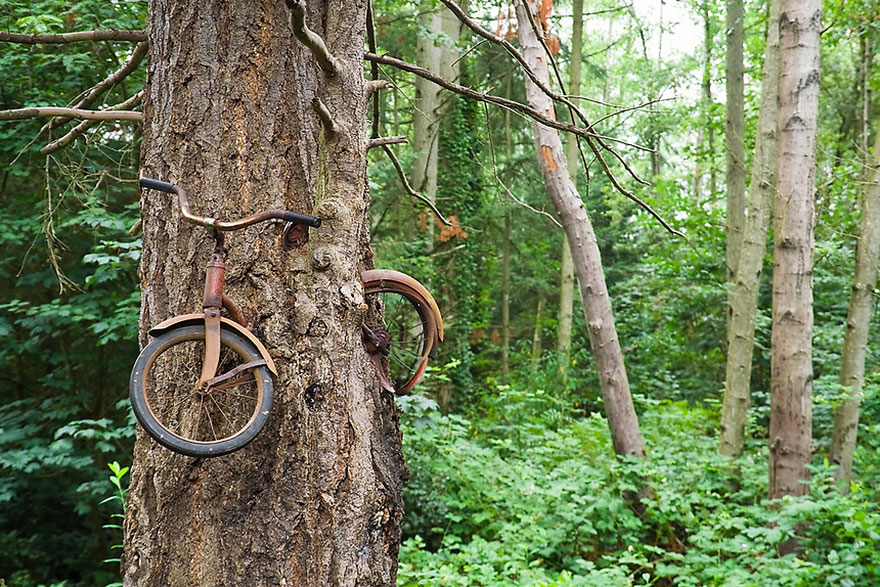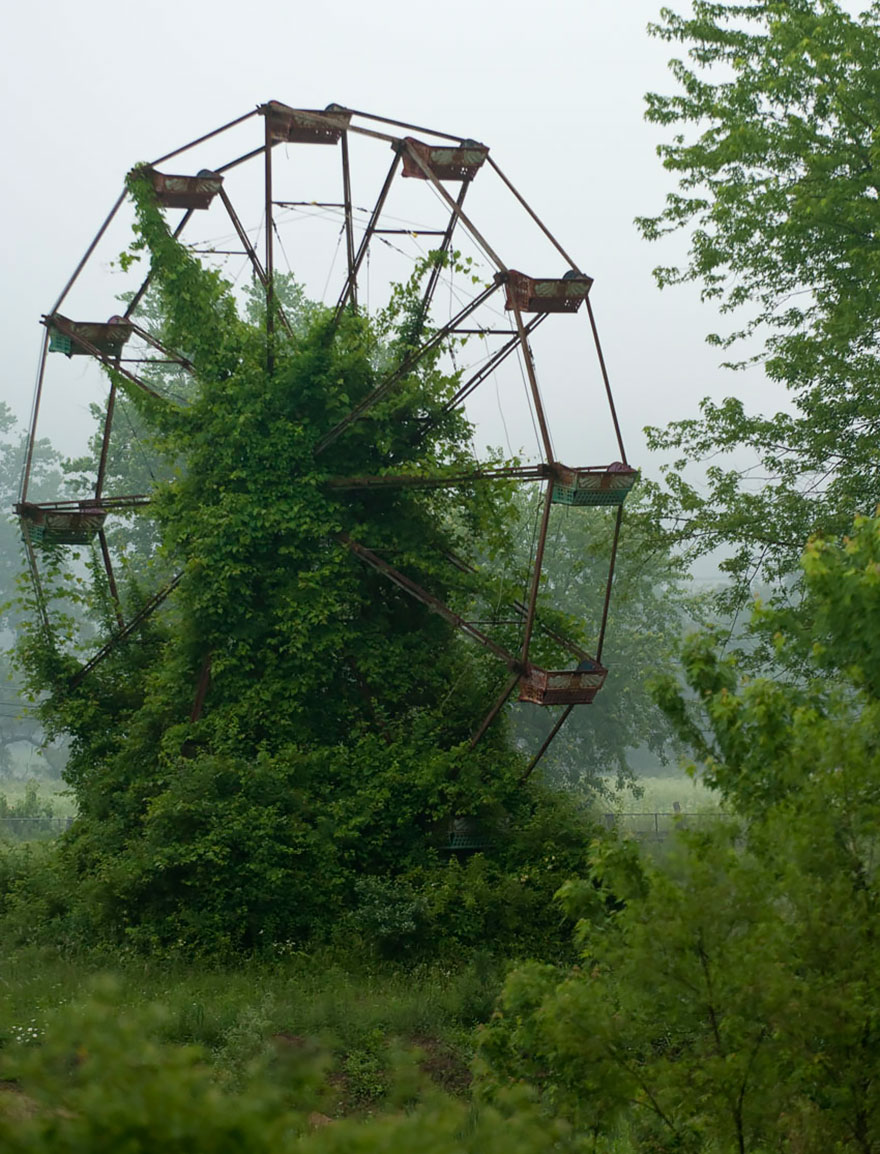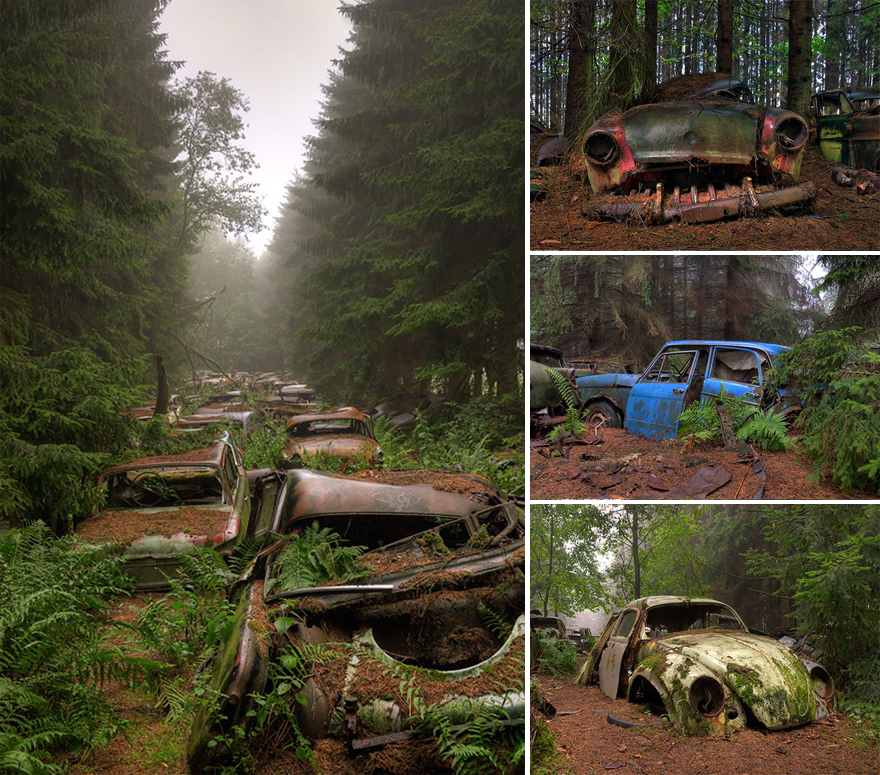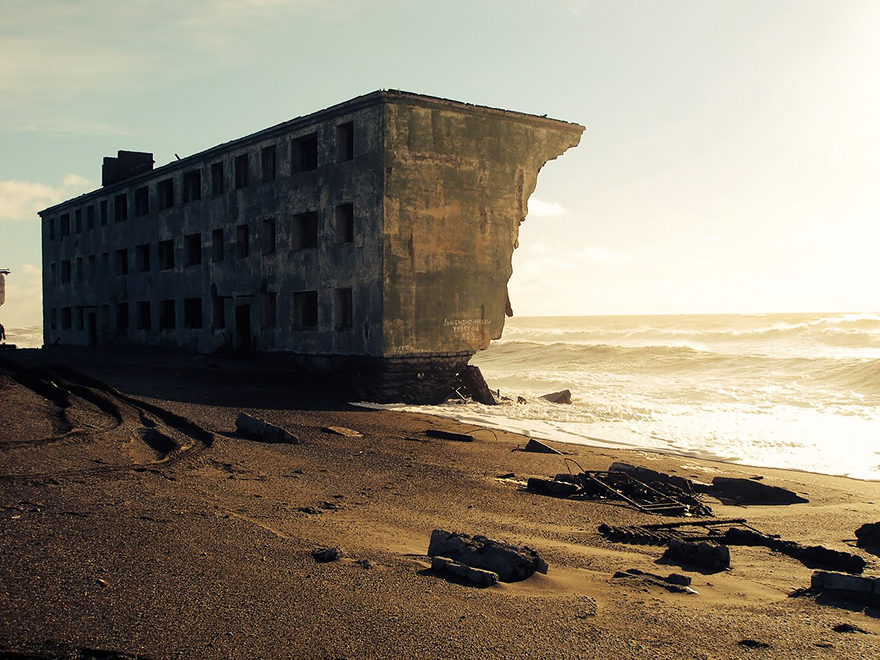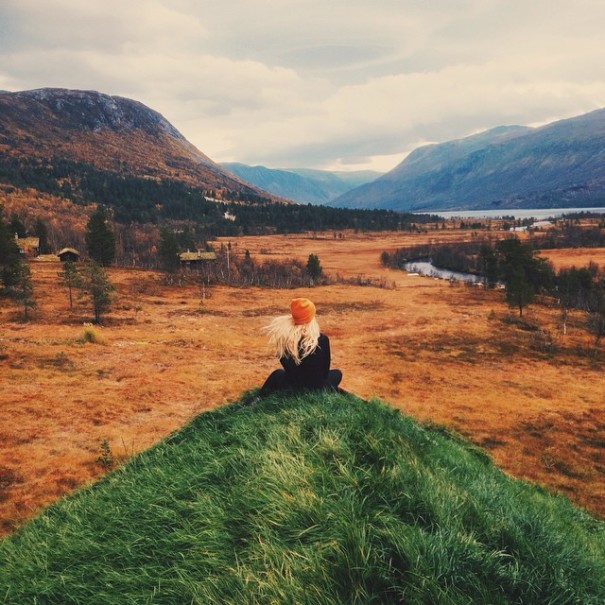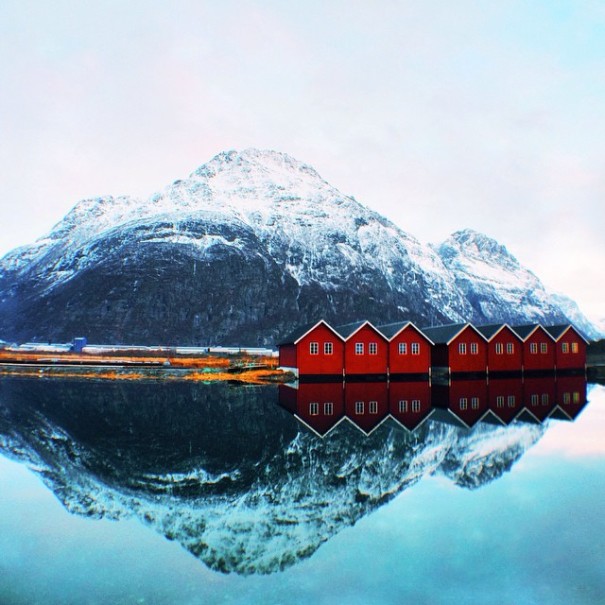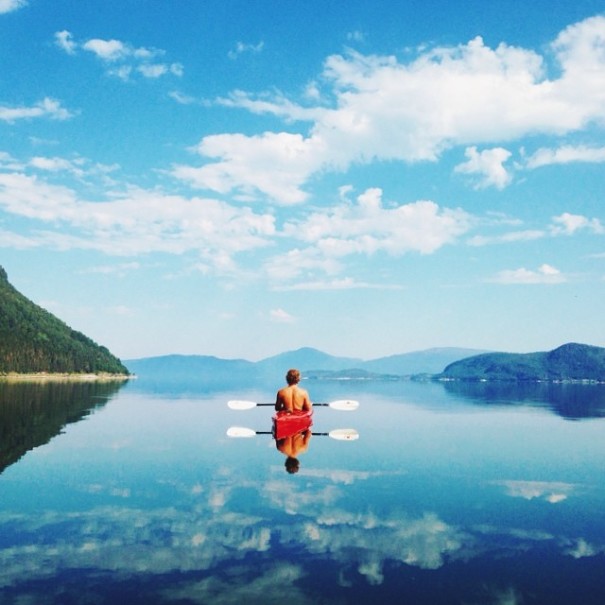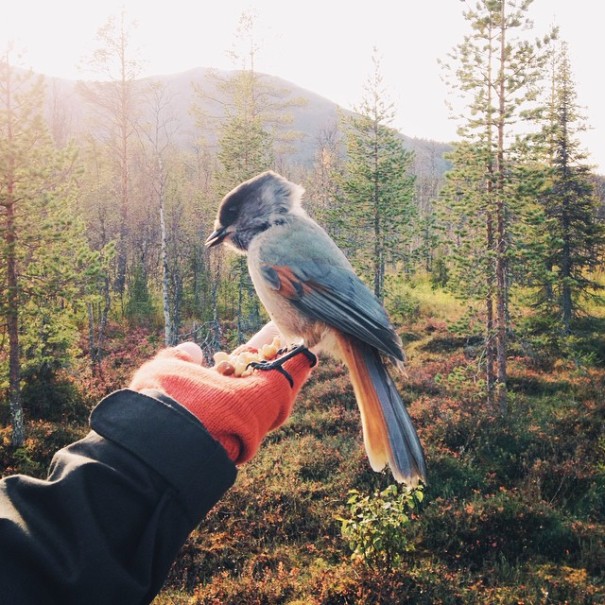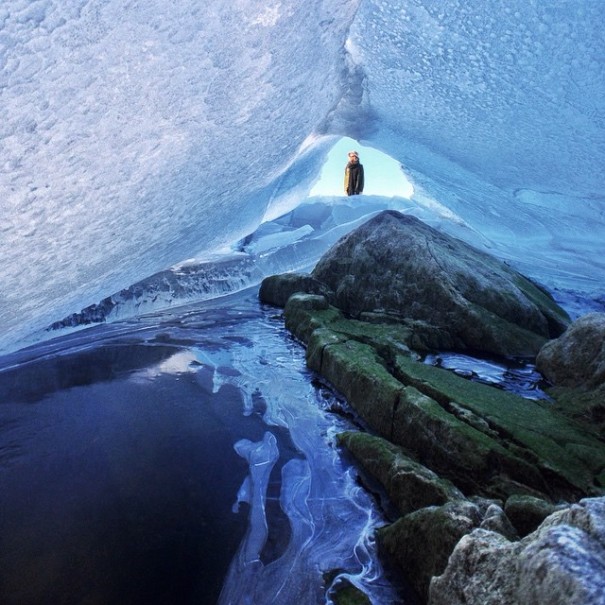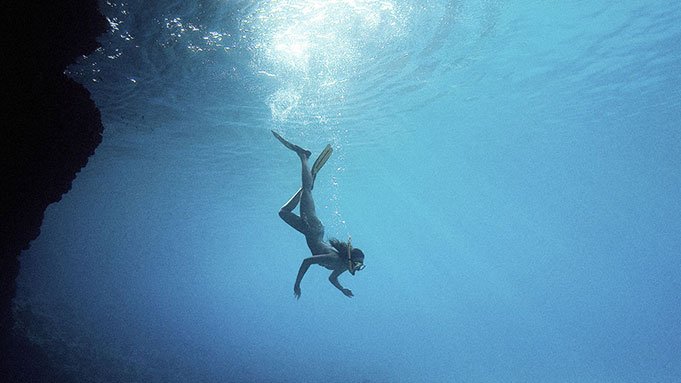Makeup artist Ravil Agmalov — who has worked with models, actors, actresses, adult film stars, and just about everyone else you can think of — shows just how powerful makeup can be with her before-and-after Instagram photos.
These women’s faces are transformed with nothing more than a little contouring and shading with makeup.40 Crazy Photographers Who Will Do ANYTHING For The Perfect Shot
Getting the angle and perspective for a photo just right can sometimes be very tricky, but these crazy photographers don’t mind – when it comes to taking the perfect shot, they will do whatever it takes.The acts of devotion to their craft that some of the world’s best photographers perform can be truly outstanding. Wildlife photographers have spent weeks camped out in the wild, allowing animals to get accustomed to their presence so that they can get the rare or intimate glimpses at their lives that others only dream of.
#1
#2
#3
#4
#5
#6
#7
#8
#9
#10
#11
#12
#13
#14
#15
#16
#17
#18
#19
#20
#21
#22
#23
#24
#25
#26
#27
#28
#29
#30
#31
#32
#33
#34
#35
#36
#37
#38
#39
#40
20 Photos Of Nature Winning The Battle Against Civilization
As solid and unshakable as we think our civilization is, its grip on nature is tenuous at best. If any cracks appear in the faces of our buildings or our machines, nature is quick to move in and take over. With this in mind, here are 21 photos of places and things that nature is in the process of reclaiming.
Quite a bit of thought has been given to the idea of what Earth might look like once we’re gone. Indeed, many books and TV shows on the topic have found that nature would take our places fairly quickly. Many cities would be re-colonized within a year or two, and many of our buildings would begin crumbling soon after without human maintenance or energy sources. The Life After People series on the History Channel has a comprehensive timeline of collapses detailing when various famous landmarks of human civilization throughout the world might give way to nature.
The Old Piano Tree, California
Image credits: CrackoalaTrees Winning Against Concrete In Hong Kong
Image credits: Romain JLAbandoned Inner City Railway In Paris
Image credits: messynessychic.comBicycle Eaten by A Tree On Vashon Island, Washington
Image credits: Ethan WeltyAbandoned Shopping Mall Taken Over By Fish In Bangkok
Image credits: Jesse RockwellOld Abandoned Mill In Sorrento, Italy
Image credits: Jason WallaceAbandoned Ferris Wheel
Image credits: Kyle TelechanVintage Automobile Graveyard, Belgium
Image credits: Rosanne de LangeAbandoned Mining Town, Namibia
Image credits: Marsel Van OostenAbandoned 160-Year-Old Railway In Paris
Image credits: Pierre Folk102-Year-Old Abandoned Ship In Sydney, Australia
Image credits: AndyBriiTree Roots Overcoming Brick Sidewalk
Image credits: worldbeyondyourown Image credits: Wei-Feng XueAbandoned Mansion Near Kilgarvan, Ireland
Image credits: Sam AbellAbandoned Train Station In Abkhazia, Georgia
Image credits: Ilya VarlamovI.M. Cooling Tower, Belgium
Image credits: brokenviewAbandoned Fishermen’s Town In Kamchatka, Russia
Image credits: englishrussia.comAngkor, Cambodia
Image credits: Pietro Bevilacqua Image credits: Brad GroveAbandoned Hotel Room
Image credits: Matthias HakerThe Radioactive Ghost City Of Pripyat, Ukraine
Image credits: castlemaineindependent.orgThis Couple Takes The Most Breathtaking Travel Pictures You’ll Ever See
There’s no better person to travel the world with than your soulmate.
Meet Samuel and Hildegunn Taipale.
After tying the knot, this Finnish-Norwegian couple set off on grand adventures to some of the most beautiful places in the world.
But that’s not all; these lovebirds also take some seriously impressive photos showing all the breathtakingly beautiful places they come across during their travels.
Their snapshots of snow-capped mountains, majestic waterfalls and stunning Scandanavian skies are absolutely incredible, and their epic Instagram photos will certainly put all of your “hotdog legs on the beach” pictures to shame.
Their adventures on Instagram have inspired over 130 thousand followers, and they have been featured in several different articles. See below for a selection of their best photos:
More info: taipalebrothers | Instagram
102 Year Old Dancer Sees Herself On Film For The First Time, And It’s Incredibly Moving
102-year-old Alice Barker was a famous chorus line dancer back in the days of the Harlem Renaissance, in the 1930s and 40s. Dancing at legendary clubs like The Apollo, Cotton Club, and Zanzibar Club, she performed with some of the most celebrated names in the golden years of show business: Frank Sinatra, Gene Kelly, and Bill “Bojangles” Robinson.
 billboard.com
But in all her years under the spotlight, she had no videos or pictures to remember them by.
Enter David Shuff. He was a friend she met when he brought his therapy dog to her retirement home years ago, and who became aware of Barker’s past.
After searching far and wide, Shuff found the prized videos with a short musical films collector. Barker finally had the opportunity — at 102 years of age — to see herself and relive her younger days in the chorus line.
It’s no question that one of the most emotional parts of the video was when one of the nurses asked, “How did it feel seeing yourself?”, to which Barker replied, “Making me wish that I could get out of this bed, and do it all over again.”
billboard.com
But in all her years under the spotlight, she had no videos or pictures to remember them by.
Enter David Shuff. He was a friend she met when he brought his therapy dog to her retirement home years ago, and who became aware of Barker’s past.
After searching far and wide, Shuff found the prized videos with a short musical films collector. Barker finally had the opportunity — at 102 years of age — to see herself and relive her younger days in the chorus line.
It’s no question that one of the most emotional parts of the video was when one of the nurses asked, “How did it feel seeing yourself?”, to which Barker replied, “Making me wish that I could get out of this bed, and do it all over again.”
When asked how many years she danced, Barker replied: “That’s all I ever did, that was it!”

Watch the sweet moment below:
Know Thyself: Intriguing Philosophy Bites
Stephen Fry has joined the BBC series called “Philosophy Bites” and in the following animations he explains the everlasting philosophical topic – The Self.
These four videos deal with the notion of what it means to know oneself. Namely, the first video deals with Rene Descrates’s famous declaration “I think, therefore I am”; the second one is focused on Socrates himself, while the last two depict Jean-Paul Sartre’s concept of human existence preceding human essence and Erving Goffman’s – “The Presentation of Self in Everyday Life”.
If the notions that we know nothing, that we have no fixed identities, that we create our self by our own actions, and that a trickster demon may be controlling our thoughts even as we read this seem too detached from everyday experience to easily grasp, at least we have a sensible English voice like Fry’s to guide us through them. Whichever of this thinkers sounds most plausible to you, you’ll come out feeling a bit surer that, whatever constitutes our selves — if indeed we have them — it isn’t what you might have assumed going in.
1. Rene Descrates – “I think therefore I am”
2. Socrates – “Know Thyself”
3. John Paul Sartre and the Existential Choice
4. Erving Goffman and the Performed Self
The Science Of Why You Should Spend Your Money On Experiences, Not Things
Most people are in the pursuit of happiness. There are economists who think happiness is the best indicator of the health of a society. We know that money can make you happier, though after your basic needs are met, it doesn’t make you that much happier. But one of the biggest questions is how to allocate our money, which is (for most of us) a limited resource.
There’s a very logical assumption that most people make when spending their money: that because a physical object will last longer, it will make us happier for a longer time than a one-off experience like a concert or vacation. According to recent research, it turns out that assumption is completely wrong.
“One of the enemies of happiness is adaptation,” says Dr. Thomas Gilovich, a psychology professor at Cornell University who has been studying the question of money and happiness for over two decades. “We buy things to make us happy, and we succeed. But only for a while. New things are exciting to us at first, but then we adapt to them.”
 So rather than buying the latest iPhone or a new BMW, Gilovich suggests you’ll get more happiness spending money on experiences like going to art exhibits, doing outdoor activities, learning a new skill, or traveling.
Gilovich’s findings are the synthesis of psychological studies conducted by him and others into the Easterlin paradox, which found that money buys happiness, but only up to a point. How adaptation affects happiness, for instance, was measured in a study that asked people to self-report their happiness with major material and experiential purchases. Initially, their happiness with those purchases was ranked about the same. But over time, people’s satisfaction with the things they bought went down, whereas their satisfaction with experiences they spent money on went up.
It’s counterintuitive that something like a physical object that you can keep for a long time doesn’t keep you as happy as long as a once-and-done experience does. Ironically, the fact that a material thing is ever present works against it, making it easier to adapt to. It fades into the background and becomes part of the new normal. But while the happiness from material purchases diminishes over time, experiences become an ingrained part of our identity.
“Our experiences are a bigger part of ourselves than our material goods,” says Gilovich. “You can really like your material stuff. You can even think that part of your identity is connected to those things, but nonetheless they remain separate from you. In contrast, your experiences really are part of you. We are the sum total of our experiences.”
One study conducted by Gilovich even showed that if people have an experience they say negatively impacted their happiness, once they have the chance to talk about it, their assessment of that experience goes up. Gilovich attributes this to the fact that something that might have been stressful or scary in the past can become a funny story to tell at a party or be looked back on as an invaluable character-building experience.
Another reason is that shared experiences connect us more to other people than shared consumption. You’re much more likely to feel connected to someone you took a vacation with in Bogotá than someone who also happens to have bought a 4K TV.
So rather than buying the latest iPhone or a new BMW, Gilovich suggests you’ll get more happiness spending money on experiences like going to art exhibits, doing outdoor activities, learning a new skill, or traveling.
Gilovich’s findings are the synthesis of psychological studies conducted by him and others into the Easterlin paradox, which found that money buys happiness, but only up to a point. How adaptation affects happiness, for instance, was measured in a study that asked people to self-report their happiness with major material and experiential purchases. Initially, their happiness with those purchases was ranked about the same. But over time, people’s satisfaction with the things they bought went down, whereas their satisfaction with experiences they spent money on went up.
It’s counterintuitive that something like a physical object that you can keep for a long time doesn’t keep you as happy as long as a once-and-done experience does. Ironically, the fact that a material thing is ever present works against it, making it easier to adapt to. It fades into the background and becomes part of the new normal. But while the happiness from material purchases diminishes over time, experiences become an ingrained part of our identity.
“Our experiences are a bigger part of ourselves than our material goods,” says Gilovich. “You can really like your material stuff. You can even think that part of your identity is connected to those things, but nonetheless they remain separate from you. In contrast, your experiences really are part of you. We are the sum total of our experiences.”
One study conducted by Gilovich even showed that if people have an experience they say negatively impacted their happiness, once they have the chance to talk about it, their assessment of that experience goes up. Gilovich attributes this to the fact that something that might have been stressful or scary in the past can become a funny story to tell at a party or be looked back on as an invaluable character-building experience.
Another reason is that shared experiences connect us more to other people than shared consumption. You’re much more likely to feel connected to someone you took a vacation with in Bogotá than someone who also happens to have bought a 4K TV.
 “We consume experiences directly with other people,” says Gilovich. “And after they’re gone, they’re part of the stories that we tell to one another.”
And even if someone wasn’t with you when you had a particular experience, you’re much more likely to bond over both having hiked the Appalachian Trail or seeing the same show than you are over both owning Fitbits.
You’re also much less prone to negatively compare your own experiences to someone else’s than you would with material purchases. One study conducted by researchers Ryan Howell and Graham Hill found that it’s easier to feature-compare material goods (how many carats is your ring? how fast is your laptop’s CPU?) than experiences. And since it’s easier to compare, people do so.
“The tendency of keeping up with the Joneses tends to be more pronounced for material goods than for experiential purchases,” says Gilovich. “It certainly bothers us if we’re on a vacation and see people staying in a better hotel or flying first class. But it doesn’t produce as much envy as when we’re outgunned on material goods.”
Gilovich’s research has implications for individuals who want to maximize their happiness return on their financial investments, for employers who want to have a happier workforce, and policy-makers who want to have a happy citizenry.
“By shifting the investments that societies make and the policies they pursue, they can steer large populations to the kinds of experiential pursuits that promote greater happiness,” write Gilovich and his coauthor, Amit Kumar, in their recent article in the academic journal Experimental Social Psychology.
If society takes their research to heart, it should mean not only a shift in how individuals spend their discretionary income, but also place an emphasis on employers giving paid vacation and governments taking care of recreational spaces.
“As a society, shouldn’t we be making experiences easier for people to have?” asks Gilovich.
“We consume experiences directly with other people,” says Gilovich. “And after they’re gone, they’re part of the stories that we tell to one another.”
And even if someone wasn’t with you when you had a particular experience, you’re much more likely to bond over both having hiked the Appalachian Trail or seeing the same show than you are over both owning Fitbits.
You’re also much less prone to negatively compare your own experiences to someone else’s than you would with material purchases. One study conducted by researchers Ryan Howell and Graham Hill found that it’s easier to feature-compare material goods (how many carats is your ring? how fast is your laptop’s CPU?) than experiences. And since it’s easier to compare, people do so.
“The tendency of keeping up with the Joneses tends to be more pronounced for material goods than for experiential purchases,” says Gilovich. “It certainly bothers us if we’re on a vacation and see people staying in a better hotel or flying first class. But it doesn’t produce as much envy as when we’re outgunned on material goods.”
Gilovich’s research has implications for individuals who want to maximize their happiness return on their financial investments, for employers who want to have a happier workforce, and policy-makers who want to have a happy citizenry.
“By shifting the investments that societies make and the policies they pursue, they can steer large populations to the kinds of experiential pursuits that promote greater happiness,” write Gilovich and his coauthor, Amit Kumar, in their recent article in the academic journal Experimental Social Psychology.
If society takes their research to heart, it should mean not only a shift in how individuals spend their discretionary income, but also place an emphasis on employers giving paid vacation and governments taking care of recreational spaces.
“As a society, shouldn’t we be making experiences easier for people to have?” asks Gilovich.
 So rather than buying the latest iPhone or a new BMW, Gilovich suggests you’ll get more happiness spending money on experiences like going to art exhibits, doing outdoor activities, learning a new skill, or traveling.
Gilovich’s findings are the synthesis of psychological studies conducted by him and others into the Easterlin paradox, which found that money buys happiness, but only up to a point. How adaptation affects happiness, for instance, was measured in a study that asked people to self-report their happiness with major material and experiential purchases. Initially, their happiness with those purchases was ranked about the same. But over time, people’s satisfaction with the things they bought went down, whereas their satisfaction with experiences they spent money on went up.
It’s counterintuitive that something like a physical object that you can keep for a long time doesn’t keep you as happy as long as a once-and-done experience does. Ironically, the fact that a material thing is ever present works against it, making it easier to adapt to. It fades into the background and becomes part of the new normal. But while the happiness from material purchases diminishes over time, experiences become an ingrained part of our identity.
“Our experiences are a bigger part of ourselves than our material goods,” says Gilovich. “You can really like your material stuff. You can even think that part of your identity is connected to those things, but nonetheless they remain separate from you. In contrast, your experiences really are part of you. We are the sum total of our experiences.”
One study conducted by Gilovich even showed that if people have an experience they say negatively impacted their happiness, once they have the chance to talk about it, their assessment of that experience goes up. Gilovich attributes this to the fact that something that might have been stressful or scary in the past can become a funny story to tell at a party or be looked back on as an invaluable character-building experience.
Another reason is that shared experiences connect us more to other people than shared consumption. You’re much more likely to feel connected to someone you took a vacation with in Bogotá than someone who also happens to have bought a 4K TV.
So rather than buying the latest iPhone or a new BMW, Gilovich suggests you’ll get more happiness spending money on experiences like going to art exhibits, doing outdoor activities, learning a new skill, or traveling.
Gilovich’s findings are the synthesis of psychological studies conducted by him and others into the Easterlin paradox, which found that money buys happiness, but only up to a point. How adaptation affects happiness, for instance, was measured in a study that asked people to self-report their happiness with major material and experiential purchases. Initially, their happiness with those purchases was ranked about the same. But over time, people’s satisfaction with the things they bought went down, whereas their satisfaction with experiences they spent money on went up.
It’s counterintuitive that something like a physical object that you can keep for a long time doesn’t keep you as happy as long as a once-and-done experience does. Ironically, the fact that a material thing is ever present works against it, making it easier to adapt to. It fades into the background and becomes part of the new normal. But while the happiness from material purchases diminishes over time, experiences become an ingrained part of our identity.
“Our experiences are a bigger part of ourselves than our material goods,” says Gilovich. “You can really like your material stuff. You can even think that part of your identity is connected to those things, but nonetheless they remain separate from you. In contrast, your experiences really are part of you. We are the sum total of our experiences.”
One study conducted by Gilovich even showed that if people have an experience they say negatively impacted their happiness, once they have the chance to talk about it, their assessment of that experience goes up. Gilovich attributes this to the fact that something that might have been stressful or scary in the past can become a funny story to tell at a party or be looked back on as an invaluable character-building experience.
Another reason is that shared experiences connect us more to other people than shared consumption. You’re much more likely to feel connected to someone you took a vacation with in Bogotá than someone who also happens to have bought a 4K TV.
 “We consume experiences directly with other people,” says Gilovich. “And after they’re gone, they’re part of the stories that we tell to one another.”
And even if someone wasn’t with you when you had a particular experience, you’re much more likely to bond over both having hiked the Appalachian Trail or seeing the same show than you are over both owning Fitbits.
You’re also much less prone to negatively compare your own experiences to someone else’s than you would with material purchases. One study conducted by researchers Ryan Howell and Graham Hill found that it’s easier to feature-compare material goods (how many carats is your ring? how fast is your laptop’s CPU?) than experiences. And since it’s easier to compare, people do so.
“The tendency of keeping up with the Joneses tends to be more pronounced for material goods than for experiential purchases,” says Gilovich. “It certainly bothers us if we’re on a vacation and see people staying in a better hotel or flying first class. But it doesn’t produce as much envy as when we’re outgunned on material goods.”
Gilovich’s research has implications for individuals who want to maximize their happiness return on their financial investments, for employers who want to have a happier workforce, and policy-makers who want to have a happy citizenry.
“By shifting the investments that societies make and the policies they pursue, they can steer large populations to the kinds of experiential pursuits that promote greater happiness,” write Gilovich and his coauthor, Amit Kumar, in their recent article in the academic journal Experimental Social Psychology.
If society takes their research to heart, it should mean not only a shift in how individuals spend their discretionary income, but also place an emphasis on employers giving paid vacation and governments taking care of recreational spaces.
“As a society, shouldn’t we be making experiences easier for people to have?” asks Gilovich.
“We consume experiences directly with other people,” says Gilovich. “And after they’re gone, they’re part of the stories that we tell to one another.”
And even if someone wasn’t with you when you had a particular experience, you’re much more likely to bond over both having hiked the Appalachian Trail or seeing the same show than you are over both owning Fitbits.
You’re also much less prone to negatively compare your own experiences to someone else’s than you would with material purchases. One study conducted by researchers Ryan Howell and Graham Hill found that it’s easier to feature-compare material goods (how many carats is your ring? how fast is your laptop’s CPU?) than experiences. And since it’s easier to compare, people do so.
“The tendency of keeping up with the Joneses tends to be more pronounced for material goods than for experiential purchases,” says Gilovich. “It certainly bothers us if we’re on a vacation and see people staying in a better hotel or flying first class. But it doesn’t produce as much envy as when we’re outgunned on material goods.”
Gilovich’s research has implications for individuals who want to maximize their happiness return on their financial investments, for employers who want to have a happier workforce, and policy-makers who want to have a happy citizenry.
“By shifting the investments that societies make and the policies they pursue, they can steer large populations to the kinds of experiential pursuits that promote greater happiness,” write Gilovich and his coauthor, Amit Kumar, in their recent article in the academic journal Experimental Social Psychology.
If society takes their research to heart, it should mean not only a shift in how individuals spend their discretionary income, but also place an emphasis on employers giving paid vacation and governments taking care of recreational spaces.
“As a society, shouldn’t we be making experiences easier for people to have?” asks Gilovich. 
































